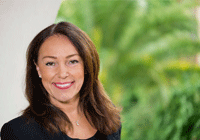
Photo credits:
Stewen Quigley
From the Principal
The Principal's Note
15 January, 2024
Science for a Brighter Future
With the beginning of the New Year, we are excited to start off a new semester of research and knowledge
advancement. In times of enhanced societal uncertainty and unrest, the advancement of knowledge and
insight is all the more important and vital. Over the coming months, the Collegium will be spearheading a
number of initiatives that highlight the significance of science for a brighter and better future. It is our con-
viction that the advancement of knowledge may contribute not only to new social and technological inno-
vations, but also to the advancement of democracy and inclusive societies.
Related to this conviction, we are happy and honoured to be hosting Professor Michèle Lamont for the 6th
Wittrock Lecture on March 8. The topic of this lecture is Seeing Others, inspired by the title of her latest
book. As a prominent scholar of culture and identity in the world today, she highlights how the ways in
which we see others and how we relate to each other have social and political implications for inclusion,
equality, and in the long run, for democracy.
Not only lack of tolerance and respect, but also distrust in science, the spread of disinformation, and the
prevalence of fact resistance hinder innovation and undermine societal development. The growing threat
posed by disinformation and distrust of scientific knowledge – and of facts more generally – motivates
continued discussions about these and related topics. In April, SCAS will be hosting a symposium on
Science against Misinformation, funded by the Erling Persson Foundation, in which these topics will be
discussed across faculty lines.
The role of knowledge in governing political processes and policy is a central feature of research at the
Collegium, articulated not least in the fellowship programme Global Horizons, funded by Riksbankens
Jubileumsfond. Later in the spring, May 2, Fellows in this programme will address emerging forms of
governance and the kinds of knowledge cultures and regimes that underlie interventions aimed at governing
societal and political issues in various domains. These questions are imperative, since they invite us to have
a closer look at the ideational and epistemic bases for policy-making and to structuration of societies more
broadly.
Inspired by a series of events organized during the initiative A Week on Academic Freedom in November
last year, we will continue to provide a platform of discussions around how academic freedom and integrity
can best be nurtured and defended. Since the emergence of institutes for advanced study across the world,
it is in the DNA of our institutes to nurture the integrity of free, curiosity-based research and to uphold the
basic principles associated with academic freedom. This is a recurrent theme in our international network
of institutes for advanced Study, SIAS, and in our European network, NetIAS. A number of scholars,
among them Professor Helga Nowotny, have argued that curiosity is the main driving force behind scientific
activity. Limitless in its explorations, curiosity does not know beforehand what it will find, or where it will
lead, but opens up for new and often unforeseen discoveries. Science needs autonomy to cultivate this kind
of unimpeded curiosity; this is also how it may, in the future, respond to the needs and desires of society.
See our Events page for further information on upcoming events!






